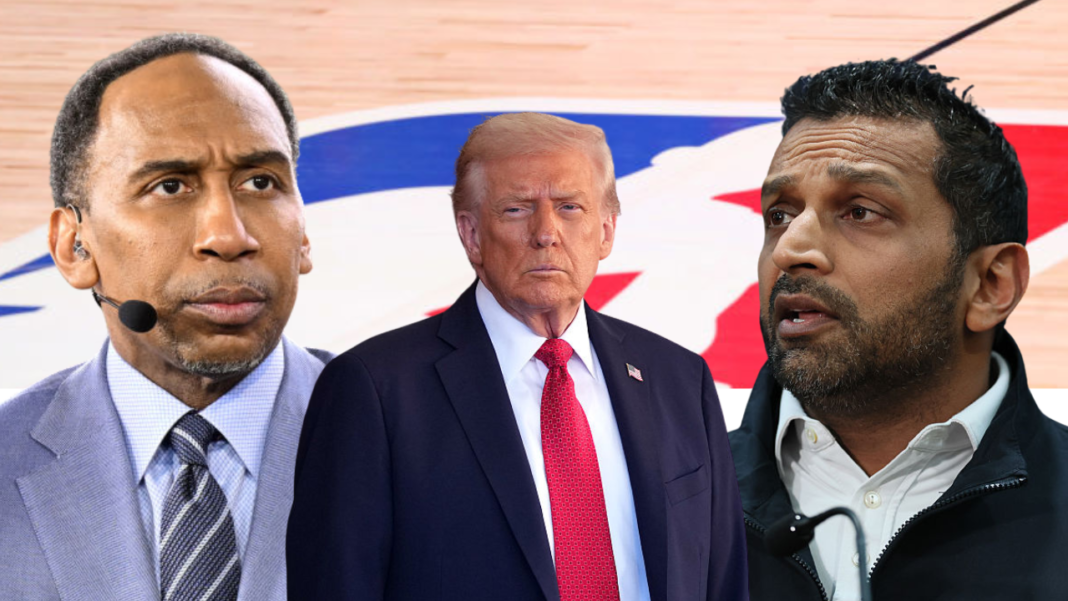FBI Director Kash Patel Responds to Stephen A. Smith’s Claims After NBA Gambling Bust
The recent high-profile arrests in the NBA have sparked a heated discussion in the sports and political arenas. FBI Director Kash Patel found himself in the spotlight after ESPN personality Stephen A. Smith suggested that the crackdown was part of a “revenge” strategy orchestrated by former President Donald Trump. This notion has raised eyebrows and ignited a debate about the intersection of politics and sports.
The Arrests: A Federal Investigation Unfolds
On Monday, the FBI executed a significant operation that resulted in the arrests of renowned figures within the NBA, including the esteemed NBA Coach Chauncey Billups, Miami Heat guard Terry Rozier, and former player Damon Jones. They, along with various members of organized crime, are accused of rigging poker games, leading to an astonishing estimated loss of $7 million for victims.
The investigation had been ongoing for more than a year, initiated under the Biden administration, signaling that this was not an impulsive reaction but rather the culmination of meticulous federal work.
Smith’s Controversial Claims
Stephen A. Smith, a prominent voice in sports media, voiced his concerns about the implications of these arrests during an episode of ESPN’s “First Take.” He warned that Trump might be targeting the NBA further, possibly extending to the WNBA, given the recent protests against him from players and fans alike. His inflammatory remarks suggested that these arrests were strategically orchestrated to send a warning.
The idea that Trump could be leveraging federal investigations for personal or political gains resonates with some, especially considering Trump’s history of controversial statements about the league. Smith described Patel’s announcement as emblematic of a larger political message.
Patel’s Response to Criticism
In a swift reaction, Kash Patel defended the FBI’s actions on Fox News, dismissing Smith’s suspicions as one of the “dumbest” things he had ever heard. He emphasized his authority in determining the operations of the FBI, stating, “I’m the FBI director. I decide which arrests to conduct and which not to conduct.” This direct rebuttal was not merely a defense of protocol; it was a clear attempt to distance the federal law enforcement agency from claims of political bias.
Patel highlighted that the investigation into the NBA was unrelated to the Trump administration, stating, “It’s been going on some time.” His comments aimed to clarify the timeline and dispel conspiracy theories surrounding the motivations behind the legal actions.
The Broader Political Context
While Smith’s theories may seem controversial, they are not unfounded in the context of Trump’s fraught relationship with the NBA and its players. In 2020, Trump described the league as a “political organization,” criticizing players for protesting police violence and racial injustice. This ongoing tension creates a backdrop for Smith’s assertions about potential political retaliation, even if Patel insists the current investigations are devoid of political influence.
Trump’s past remarks about the NBA, expressing discontent with its shift towards political activism, further complicate public perception. His comments have led many to believe that he sees the league’s political stances as a direct challenge, which inevitably links the worlds of sports and politics in the public imagination.
The Intersection of Sports and Politics
The arrests and ensuing discussions illuminate the complex interplay between sports figures and political narratives. Fans and commentators often look for connections between the two realms, particularly in increasingly polarized times. As sports personalities speak out on issues of social justice and politics, they inevitably find themselves navigating a landscape where law enforcement can be perceived as a tool of political power.
Moreover, the reactions to the NBA bust highlight the strong opinions and emotions that surface at this intersection of athletics and governance. Whether one views the arrests as a necessary measure of law enforcement or a politically motivated act, it underscores the current climate of skepticism and conspiracy thinking.
The unfolding situation serves as a potent reminder of how the worlds of sports, politics, and law enforcement can collide, often leading to speculation and debate that reflects broader societal tensions. As conversations continue, it will be crucial to observe how public perceptions shift in tandem with the narratives spun by influential figures like Smith and Patel.



